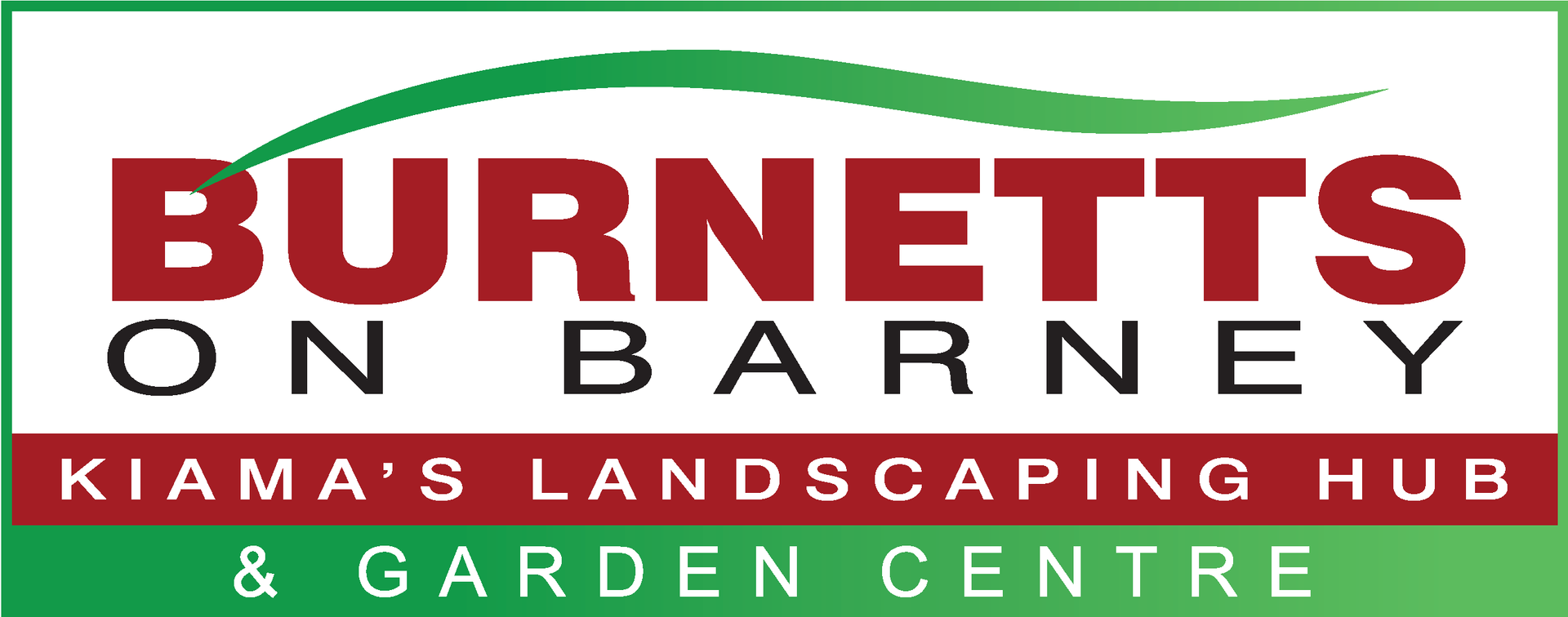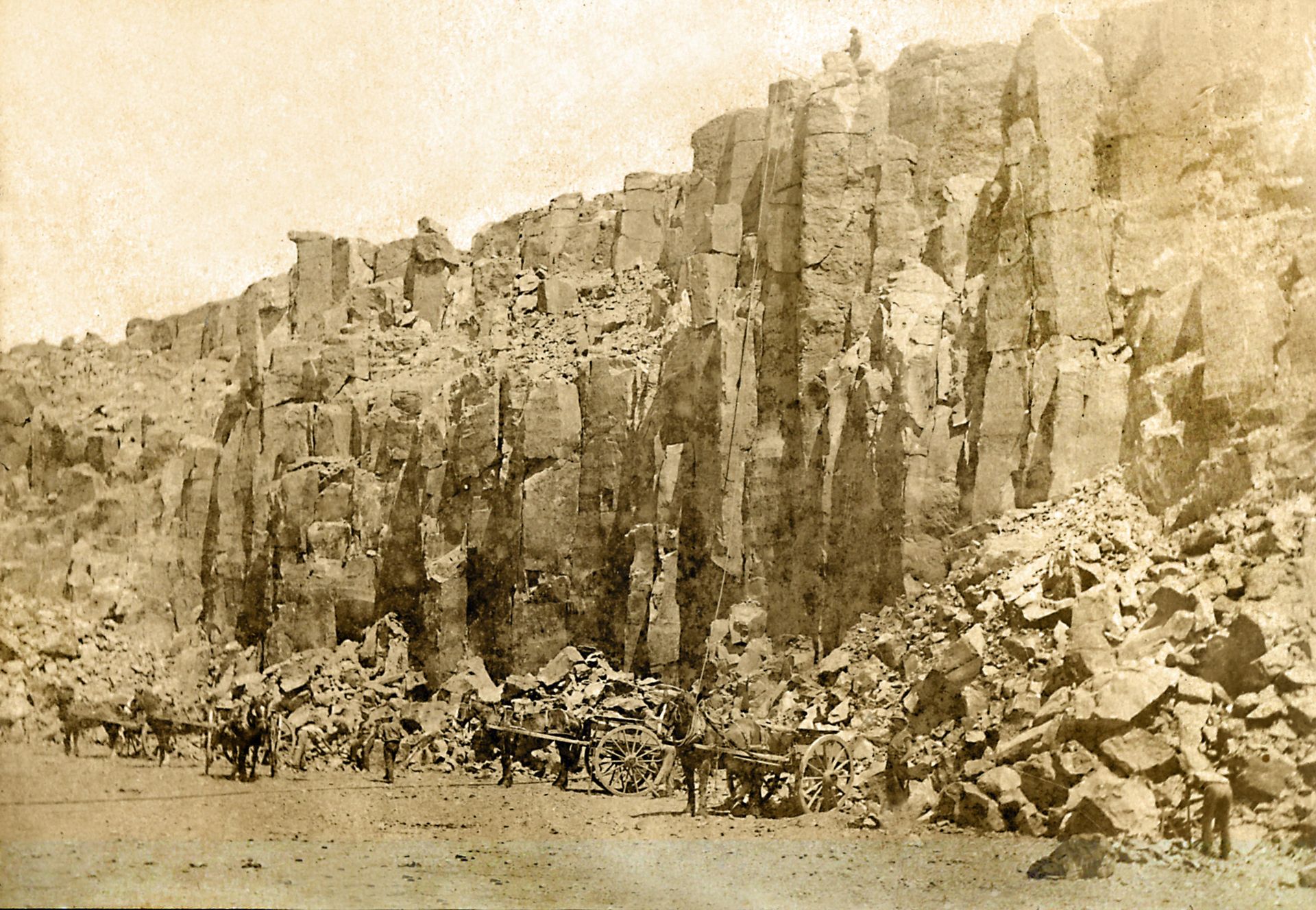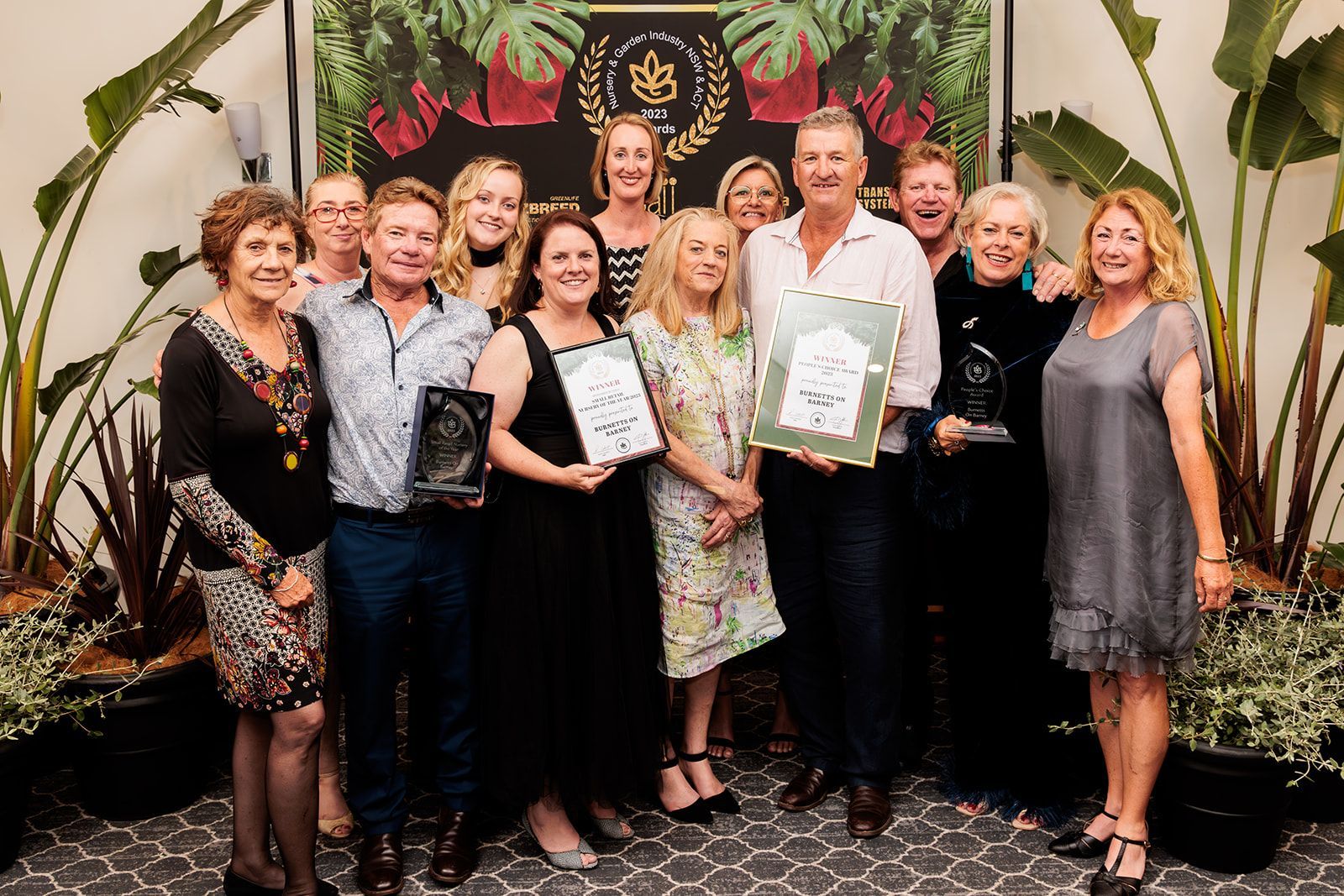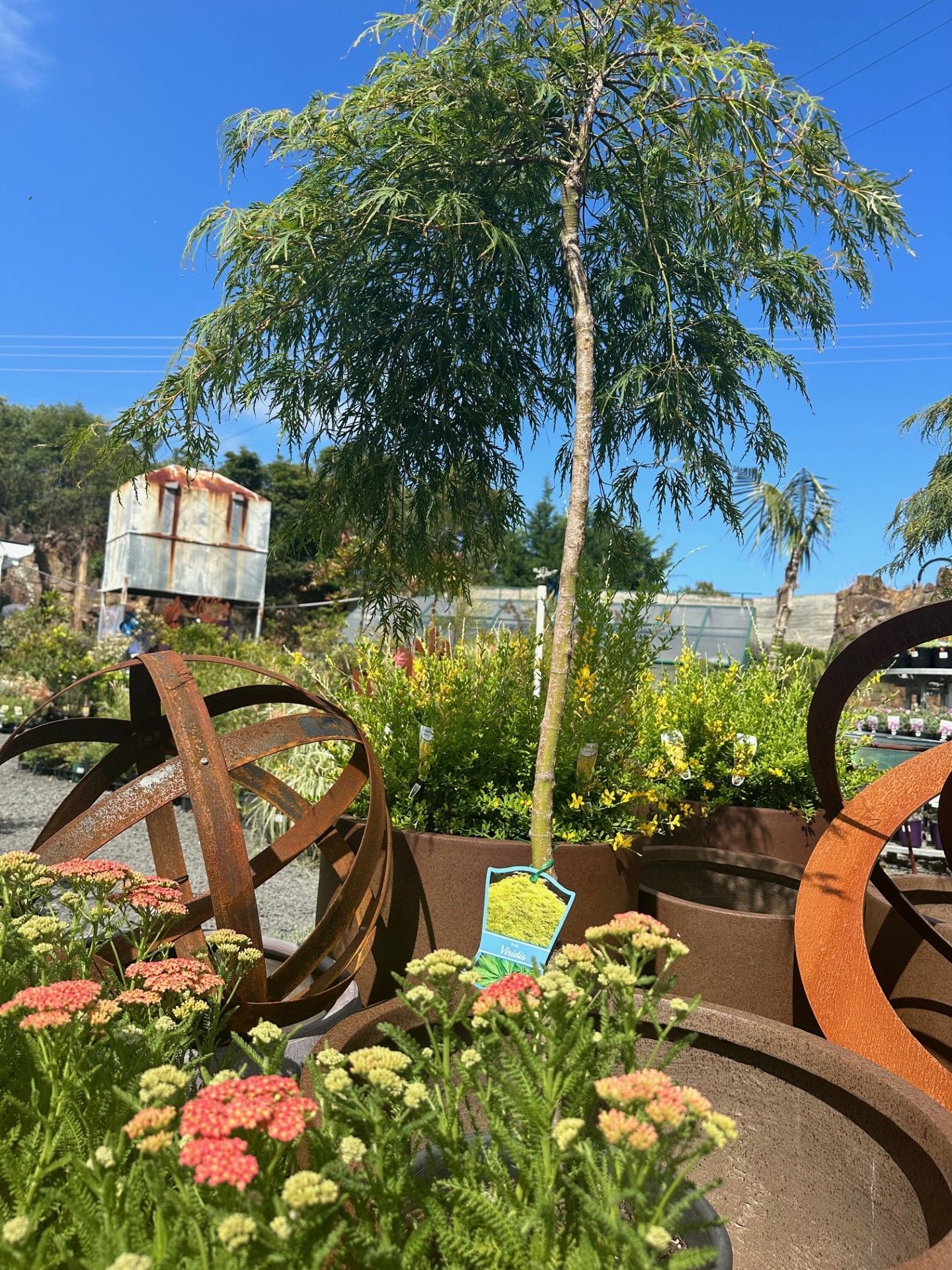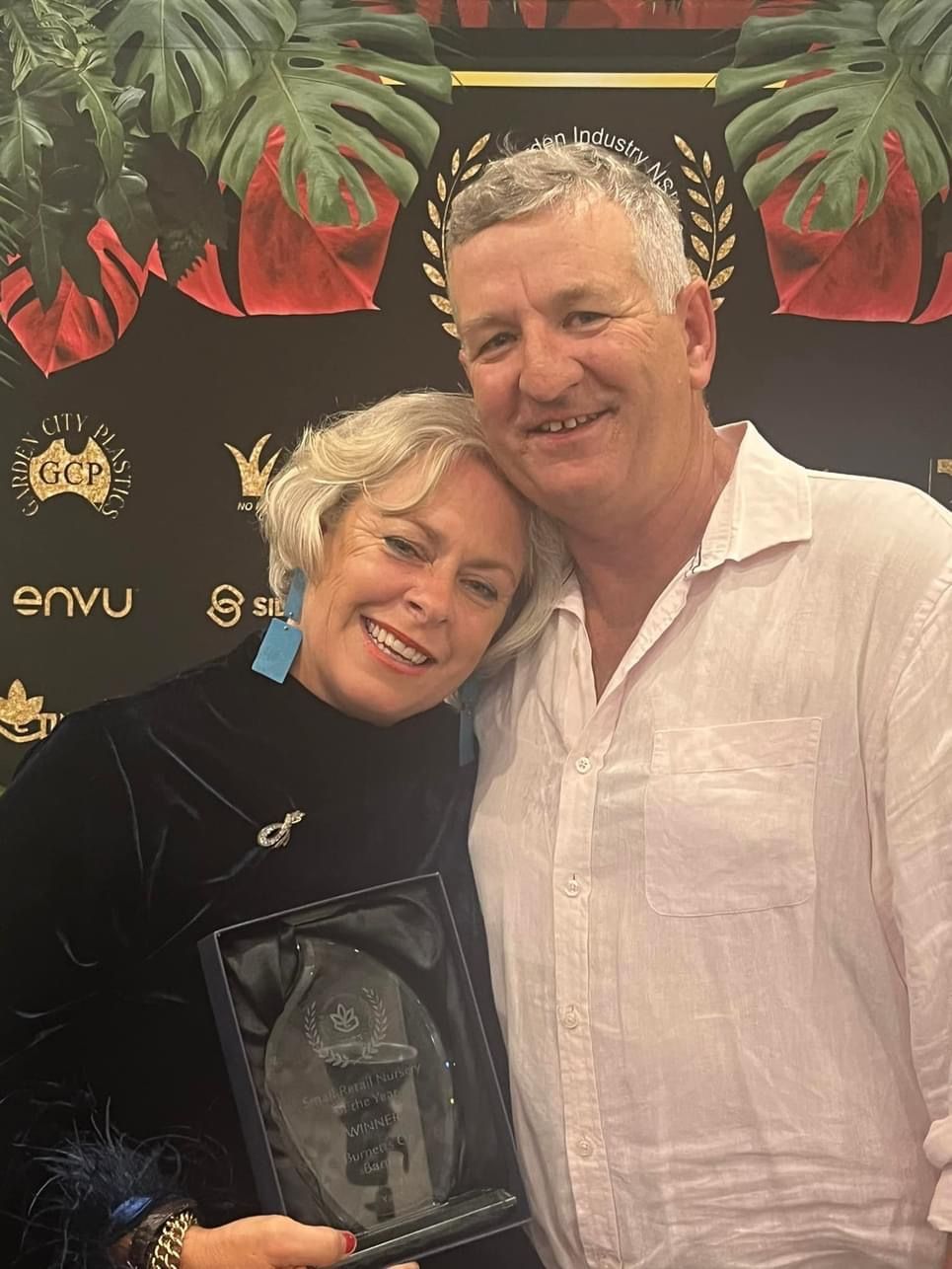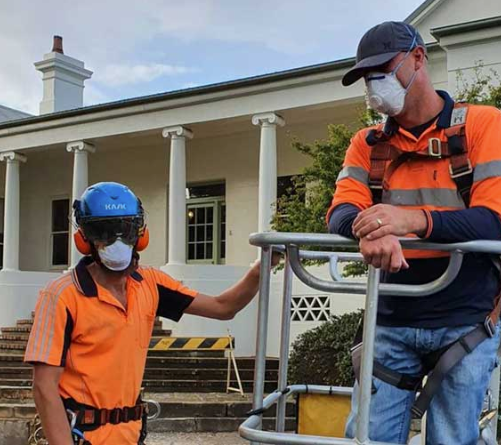About Us
History of Burnetts
The Burnetts on Barney journey began in 2001, with a vision to help local customers from Kiama and the region to create beautiful spaces through the use of plants and trees.
Andrew and Elizabeth Burnett moved to Jamberoo NSW in 2001 to start a tree care business to continue Andrew’s experience as an Arborist, Horticulturist and Tree Surgeon. Initially they operated Burnett Trees from Jamberoo. In 2012, they moved the business to its current site at the Barney Street Quarry at 80 Barney Street, Kiama NSW.
They recognised that their tree care customers needed landscape supplies, their landscape customers needed garden supplies, their garden customers needed horticultural equipment and knowledge support, and eventually, all their customers needed a strong coffee and homestyle food! And so Burnetts continued to adapt, pivot and grow to become a one-stop-shop.
Burnetts is proudly a community space, a garden haven for locals and visitors alike, and its beautiful quarry-wall space is now home to live local music each Saturday as well as festival and bespoke community and private events throughout the year.
With a genuine commitment to environmental as well as community sustainability, Burnetts proudly encourages recycling, repurposing and reducing waste. Our commitment to a healthy community includes sponsorship and support of multiple sporting teams as well as community initiatives including Kiama Men’s Shed, Kiama Show Society, Kiama Lions, Rotary and Kiama Crop and Swap.
At Burnetts, we ultimately believe in creating a more sustainable earth for everyone and celebrating the beautiful, abundant area we live in together.
History of the Site (The Quarry)
Burnetts on Barney is located in one of Kiama’s unique and historical quarry sites – the old Barney Street quarry. Quarrying has been an important industry in Kiama from the mid 1800s. Early settlers found basalt very useful in construction due to its fine grain, hardness, resistance to weathering and its ability to be crushed without disintegrating. Some of the notable basalt buildings in Kiama are the old primary school (now part of the Sebel hotel), the Anglican Christ Church, and the Kiama Courthouse. From the 1880s, Kiama became the principle provider of blue metal (made from basalt) for the NSW colony, as the local basalt was found to be a perfect base for roads and railways.
John Carson came to Kiama in 1855 and was one of the first quarrymen in the area. He started quarrying Pike's Hill and owned the quarry where the Kiama Leisure Centre is located today. John Carson's brother, William, set up the Brown Street quarry in 1876 and opened the Bombo Headland quarry in 1881.
There are a number of former quarries in the area that have since become part of the distinctive landscape of Kiama; these include Pike's Hill and Terralong Street (Kiama Leisure Centre site) quarries, Brown Street, Hothersall Street, Bombo Hill, Bombo Headland, West Bombo, Minnamurra River, Dunmore and Bass Point quarries, and of course, Barney Street quarry, where Burnetts is now located.
One of the most unique aspects of Burnetts is its surrounds – our customers love sipping on a coffee, listening to live music, and soaking up the natural beauty of the sheer bluestone quarry walls around them, imagining the hard labour the quarrymen undertook at the site back in the late 1800s. Lifesize billboard photographs throughout the cafe and its surrounds, taken from originals owned by the Carson family and generously shared for all to enjoy, bring to life the rich past of the site.
(Content: Courtesy Kiama Library)
Community & Recognition
One aspect of being a small regional business that is so important to us is our involvement in, and support of, the local community and other small businesses in it.
At Burnetts, we do everything we can to live by this, including:
- Fundraising offering our space for fundraising initiatives for charities such as the Kiama Lions Cancer Care Trust.
- Support for important local community initiatives such as the Australian Red Cross blood drive, and the Rotary apple drive.
- Support for local small businesses –
Bee Inspired bee-keeping, local musicians with our Saturday live music, stocking greeting cards made by local artists and makers.
- Hosting regular community initiatives – many local groups use the Burnetts site for regular
events and activities, including Kiama Crop & Swap which meets at 9.30am on the second Saturday of every month, The Kiama Garden Club, and more.
- Sponsorship of local events – the Kiama Show, the Kiama Jazz & Blues Festival, the Readers’ Festival.
- Free transport to Burnetts
– working with Kiama Bowlo, Burnetts runs a free bus from Blue Haven Bonaira and Terralong on the first Wednesday of each month for residents keen to keep their minds and bodies healthy with visits to The Quarry Cafe or to satisfy their garden needs.
- Multiple one-off events held at the site throughout the year – including events for Slowfood Saddleback, Kiama Business Chamber, Kiama Garden Club, Kiama Readers’ Festival and various music events. From floral wreathmaking courses at Christmas to Easter Egg hunts and regular school holiday sessions with Bee Inspired, there’s something for everyone.
We’re proud of our team whose hard work and commitment have been recognised by the garden industry and Illawarra Business with the following titles:
- Nursery & Garden Industry NSW & ACT People’s Choice Garden Centre of the Year 2023
- Nursery & Garden Industry NSW & ACT Best Small Retail Nursery 2023 and 2021
- Illawarra Business Awards 2023 Finalist, Excellence In Small Business
- Illawarra Business Awards Excellence in Sustainability – winner 2021, finalist 2020, 2022 and 2023
We are also proud to be a member of:
- Nursery & Garden Industry NSW & ACT (NGINA)
- Independent Garden Centres Association of Australia (IGC)
- Kiama and District Business Chamber
Site Links
Our Products & Services
Turf
OPERATING HOURS
- Monday
- -
- Tuesday
- -
- Wednesday
- -
- Thursday
- -
- Friday
- -
- Saturday
- -
- Sunday
- Closed
Sunday & Public Holidays: Closed
Sunday & Public Holidays: Closed
CONTACT
ABN: 29 132 037 542
Licences
- Sustainability Award Winner in Illawarra Business Awards 2020
- 2021 Best Small Retail Nursery in NSW & ACT
Acknowledgement of Country
We acknowledge the Wodi Wodi people on Dharawal country as the traditional custodians of this land.
We pay our respects to Elders past and present.
